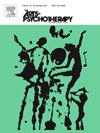支持绝症成人的子女:以艺术为基础的心理教育叙事方法
IF 1.5
3区 心理学
Q3 PSYCHOLOGY, CLINICAL
引用次数: 0
摘要
面对因重病住院的重要成年人的死亡,儿童面临的任务是适应因重要成年人即将死亡而导致的生活变化。尽管许多医院坚持以家庭为中心的理念,但这些儿童的需求往往被置于次要地位,导致具体的干预措施侧重于产品或遗产,而缺乏对产生深刻意义至关重要的心理治疗支持。这篇文章阐明并赞同一种临床方法,通过以发展为目标的心理教育来促进包容和真实的交流,这是传统工作的基本前提。我们对来自178个家庭(其中370名儿童和青少年接受了我们的项目)的主动反馈进行了回顾性主题分析编码,以确定可操作的建议或确认该项目是值得的或有益的。分析显示,审美框架、感恩、包容和关系完成是有利的结果,这表明在诊断和治疗的早期阶段,这种叙事疗法对儿童和家庭都是最有利的,对预期的悲伤和健康的丧亲至关重要。本文章由计算机程序翻译,如有差异,请以英文原文为准。
Supporting children of terminally ill adults: An arts-based psychoeducational narrative approach
Children facing the loss of a significant adult hospitalized with serious illness face the task of reconciling life changing circumstances incurred by the impending death of the significant adult figure. Despite the family centered philosophy of many hospitals, the needs of these children are often relegated to secondary consideration resulting in concrete interventions focused on product or legacy devoid of the psychotherapeutic support that is essential to profound meaning making. This article explicates and endorses a clinical approach fostering inclusion and authentic communication through developmentally targeted psychoeducation as fundamentally precursory to legacy work. Retrospective thematic analysis coding of unsolicited feedback received from 178 families for whom 370 children and teens were served by our program, was conducted to identify actionable recommendations or confirmation that the program is worthwhile or helpful. Analysis revealed aesthetic framing, gratitude, inclusion, and relationship completion as favorable outcomes suggesting that such narrative therapy in the early stages of diagnosis and treatment can be of optimal benefit to both the child(ren) and families with informational groundbreaking essential to anticipatory grief, and healthy bereavement.
求助全文
通过发布文献求助,成功后即可免费获取论文全文。
去求助
来源期刊

Arts in Psychotherapy
Multiple-
CiteScore
3.20
自引率
11.10%
发文量
66
期刊介绍:
The Arts in Psychotherapy is a dynamic, contemporary journal publishing evidence-based research, expert opinion, theoretical positions, and case material on a wide range of topics intersecting the fields of mental health and creative arts therapies. It is an international peer-reviewed journal publishing 5 issues annually. Papers are welcomed from researchers and practitioners in the fields of art, dance/movement, drama, music, and poetry psychotherapy, as well as expressive and creative arts therapy, neuroscience, psychiatry, education, allied health, and psychology that aim to engage high level theoretical concepts with the rigor of professional practice. The journal welcomes contributions that present new and emergent knowledge about the role of the arts in healthcare, and engage a critical discourse relevant to an international readership that can inform the development of new services and the refinement of existing policies and practices. There is no restriction on research methods and review papers are welcome. From time to time the journal publishes special issues on topics warranting a distinctive focus relevant to the stated goals and scope of the publication.
 求助内容:
求助内容: 应助结果提醒方式:
应助结果提醒方式:


